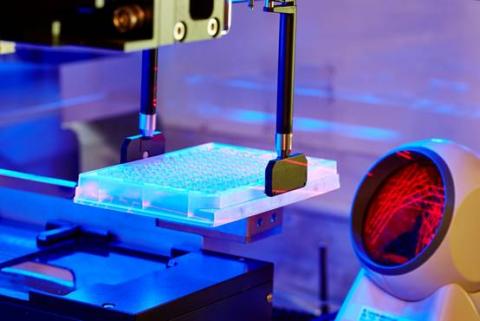Blood cancer charity Anthony Nolan has set out an ambitious research strategy to increase the number of people who survive a stem cell transplant.
The charity, which matches people with blood cancer and blood disorders in need of a transplant with strangers willing to donate their stem cells, facilitates approximately 1,200 transplants a year.
However, while techniques for stem cell transplants have advanced hugely in the past 40 years, success rates are still only around 50%, with the rest failing due to rejection, relapse or post-transplant complications.
The Anthony Nolan Research Institute, based in London, employs approximately thirty researchers, and is determined to significantly improve outcomes for stem cell recipients over the next decade by focusing on three major priorities.
Our aims for 2025
By 2025, Anthony Nolan aims to:
- improve overall survival for adults receiving a stem cell transplant for leukaemia from 44% to over half (55%);
- increase survival rates for adults who receive a transplant for other blood disorders from 50% to 60%;
- halve the number of people with post-transplant complications such as debilitating graft versus host disease (GvHD), where the donor cells attack the patient’s body.
These ambitious targets will be achieved by focusing on improvements to three key areas:
- before transplant, by continuing research into what makes a perfect genetic match;
- after transplant, by reducing the number of patients who experience post-transplant side-effects;
- in the research community, by investing in a new clinical trials platform to ensure that lifesaving advances in treatment are more quickly available to patients.
For people such as 30-year-old transplant recipient Alex Heelis, this is welcome news. Alex had her first transplant in 2005 for acute myeloid leukaemia, and a second when the disease relapsed two years later.
Alex has made a full recovery from the cancer, but now lives with GvHD as a consequence of her second transplant. ‘For me the post-transplant complications are more of an issue than the leukaemia ever was,’ said Alex, from Bristol. ‘I get cramps and muscle spasms and generally I have a lot more headaches these days. Joint restriction is the main issue, especially in my hands, wrists and ankles; I can’t run very well now and I’ve had to give up hobbies like yoga and kayaking.’
‘It would be amazing to think that in ten years’ time the number of people with such complications after a transplant could be halved, thanks to the life-changing research of Anthony Nolan.’
Anthony Nolan hopes that by reducing the number of patients who experience complications such as GvHD, it will be easier for post-transplant patients like Alex to return to their normal lives and activities.
Our statement of intent
Henny Braund, Chief Executive of Anthony Nolan, said: ‘Saving more lives has been the bedrock of Anthony Nolan’s work for more than four decades, and we are incredibly proud of what we have achieved so far.
‘However, there are still too many people dying from relapse or complications, and too many people living with debilitating side effects post-transplant. That’s why it’s so important that we put patients at the heart of our work and invest significantly in our research programme.
‘This is an ambitious strategy but I am confident that by working in partnership with patients and collaborating with fellow researchers, academics and clinicians, we can achieve our goals and deliver a better future for patients.’
Professor Alejandro Madrigal, Scientific Director of the Anthony Nolan Research Institute, said: ‘Over the next five years – and beyond – we will enhance our understanding of what makes the best possible patient-donor match and explore how we can reduce incidence of post-transplant complications and relapse.
‘It’s a hugely exciting time in terms of scientific breakthroughs, advances in genetic technology and ground-breaking new treatments such as immunotherapy. Our world-class research at the ANRI will focus firmly in areas that will undoubtedly make the biggest impact for patients.’
Professor David Marks, Consultant in Haematology and Bone Marrow Transplantation, University Hospitals Bristol said: ‘Anthony Nolan has been at the forefront of research into stem cell donation for decades, and this new research strategy demonstrates a commitment to continuing that lifesaving work. The areas the charity has identified for further research are incredibly important and the findings will help to ensure that more patients with blood cancer and blood disorders can have a second chance at life.’
Read the full document, ‘Lifesaving Science: Anthony Nolan’s Research Strategy’, here.
